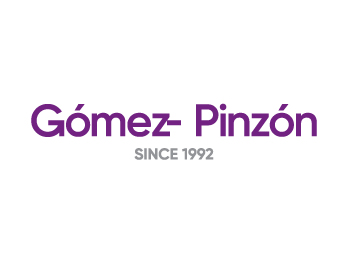On April 14, 2020, a letter was made public from the Congress of the Republic of Colombia addressed, among others, to President Iván Duque, requesting that measures be adopted to make health patents more flexible to deal with COVID 19. Within the proposed measures, it is suggested that the National Government consider the possibility of granting compulsory or non-voluntary licenses on patents and / or patent applications related to technologies whose use is useful for the management of the COVID-19 pandemic, allowing third parties They can produce, sell or import them without the consent of the patent owners.
This initiative follows in the footsteps of countries such as Israel, Canada, Germany, France, Chile and Ecuador, in which legislative measures have already been taken to allow the State to grant compulsory licenses on patented technologies that may be useful to manage the pandemic, such as diagnostic means and laboratory reagents, vaccines, pharmaceutical products for the treatment of symptoms generated by COVID-19, carbon dioxide detectors, ultrasound imaging systems, ventilators, resuscitators, masks, among others. In the specific case of Israel, the Minister of Health issued a permit authorizing the National Government to import a generic version of the patented drug Kaletra from India, for the treatment of patients infected with COVID-19, providing that AbbVie, owner of the patent, It may not be able to supply the country with a sufficient quantity of this drug, if it is shown that it effectively works for the treatment of the symptoms generated by COVID-19.
In Colombia, in 2016, the Ministry of Health and Social Protection tried to initiate a compulsory license procedure on the Novartis patent that protects the drug Glivec, a polymorph of Imatinib, useful in the treatment of various types of cancer, so that companies generic drugs could produce it and market it at a lower price. However, this process was not completed and the Ministry opted for a declaration of public interest that allowed it to set the price of the drug. Thus, in Colombia it is not yet clear how these legal tools can be properly implemented, the impact of which may transcend the management of the pandemic.
Although Decision 486 of the Andean Community Commission, through which the Common Intellectual Property Regime is established, allows the National Government, through the Superintendency of Industry and Commerce, to grant compulsory licenses of patents before the declaration of the existence of reasons of public interest, emergency or national security (as declared in Decree 476 of 2020 in its article 1.7.), it is important to consider what the consequences may be of granting compulsory licenses en masse on patented technologies or in process of being protected through this mechanism.
In order to approximate the impact of compulsory licenses on the innovation ecosystem and the Colombian patent system, it is important to refer to the experience of countries such as Brazil, Malaysia, Zimbabwe, Mozambique, Zambia, Ghana, Indonesia, Thailand, Rwanda, India and Ecuador. In these countries, the state has used compulsory licenses to make drugs for the treatment of HIV and cancer more affordable. Although compulsory licenses have helped improve the well-being of the population by improving access to patented products, the effects that these have had in the medium and long term on new innovations have been dynamic.
From a first perspective, compulsory licenses reduce the expected effectiveness of patents, so that the returns on investment in research and development can be strongly diminished, thus discouraging innovation in the long term. In this sense, having patents that are safe from compulsory licenses can promote innovation by ensuring a good economic return on investment in R & D & i. From a second point of view, compulsory licenses could incentivize innovation, since they make it essential to be able to maintain competitive advantages in the market, in a scenario in which it is not possible to maintain exclusivity rights and therefore it is not possible to sustain commercial monopolies.
It is truly difficult to predict which of these two effects could be evidenced in Colombia in the event of an eventual scenario in which compulsory licenses are granted on patents for drugs, vaccines, medical devices, etc. for the management of COVID-19. However, it is of the utmost importance to bear in mind that these types of decisions may have an impact not only on the management of the current pandemic, but will also have an effect on the barely nascent system of in-novation of the country. For this reason, it may be preferable to take measures to encourage, first of all, the creation of patent repositories and voluntary licenses, at least until an effective mechanism has been established for the payment of royalties derived from compulsory licenses to the owners of Patents, to avoid discouraging technological innovation in the country, which is so much needed in times of pandemic and which will be key in the economic recovery of the country after this.
By Germán Cortés Hernández , patent engineer from the Practice Group Intellectual Property & amp; Competition .

